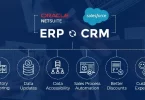Career-based education is transforming how students prepare for the workforce, bridging the gap between academic learning and real-world application. Traditional models often focus on theory, but integrating hands-on experiences ensures that students develop the practical skills that employers seek. Schools implementing these programs equip students with industry-relevant knowledge, increasing their career prospects and readiness.
As explained by Mark Balch, North High School exemplifies this approach by offering specialized pathways, particularly in aviation, where students gain exposure to high-demand industries through mentorships, internships, and technical training. These programs not only prepare students for immediate employment but also provide a strong foundation for higher education and certifications. With industry collaboration playing a vital role, businesses contribute to shaping the next generation of professionals, ensuring students are workforce-ready.
Contents
Shaping the Future with Career-Based Education
Traditional education often emphasizes theoretical knowledge over practical skills, leaving many students unprepared for the workforce. As industries change, employers seek candidates with hands-on experience and specialized training. Career-based education bridges this gap by equipping students with relevant skills and real-world applications.
Many schools are adopting career pathways to meet the growing demand for workforce readiness. Programs tailored to industries such as healthcare, technology, and aviation allow students to explore potential careers before graduation. By integrating industry-specific training with academic learning, students gain a competitive advantage in the job market. Through structured coursework, they develop technical expertise and problem-solving abilities, making them more adaptable in rapidly changing industries.
North High School’s Commitment to Career Readiness
At North High School, career-based pathways are designed to give students practical experience that connects classroom learning to real-world professions. These programs introduce students to various industries, equipping them with essential skills that make them workforce-ready upon graduation. By blending academic instruction with hands-on training, students gain a deeper understanding of their chosen fields.
Several career-focused tracks are available, allowing students to explore professions ranging from healthcare to engineering. Through specialized coursework and experiential learning, they develop technical expertise while honing problem-solving and critical-thinking skills. These pathways prepare students for immediate employment while providing a strong foundation for higher education or advanced certifications.
Employers increasingly value candidates with industry experience, and North High School ensures its students are well-prepared. Partnerships with local businesses, mentorship programs, and internship opportunities help bridge the gap between education and professional success. By working closely with industry professionals, students gain exposure to workplace expectations, giving them an edge as they transition into their careers.
The Aviation Program: A Pathway to High-Demand Careers
North High School’s aviation program offers a unique opportunity for students interested in the fast-growing aerospace industry. With a curriculum designed to cover both technical knowledge and hands-on experience, students engage in coursework that includes aerodynamics, flight mechanics, and aviation safety. Access to industry-standard equipment and simulations allows them to apply what they learn in a meaningful way.
Through collaborations with aviation professionals and organizations, students receive mentorship and exposure to real-world career possibilities. Guest speakers, field visits, and hands-on projects provide insight into the pathways available within the industry, from piloting to aircraft maintenance. These experiences help students understand the demands and expectations of aviation-related professions. Exposure to industry professionals also allows students to build strong professional networks that can benefit them as they enter the workforce.
Aviation careers are in high demand, and this program gives students a competitive edge. By the time they complete their studies, many have earned valuable certifications or gained experience that makes them appealing candidates for internships and job opportunities. Whether they choose to enter the workforce immediately or continue their education, they leave with a solid foundation that supports their future aspirations.
Student Achievements and Career Success
Students who participate in career-based pathways often graduate with a distinct advantage. Many secure internships or apprenticeships while still in school, allowing them to gain firsthand experience in their chosen fields. These opportunities not only refine their technical skills but also help them build professional connections that can lead to future employment. Having early exposure to real-world work environments also helps students develop confidence and adaptability.
Some graduates go on to earn industry-recognized certifications, making them highly competitive in the job market. A student from the aviation program, for instance, might complete coursework that prepares them for FAA certifications, giving them a head start in careers ranging from aircraft maintenance to air traffic control. Others leverage their training to pursue further education, entering college programs with a strong foundation and clear career goals. Their ability to transition seamlessly from academic learning to professional work is a testament to the effectiveness of career-based education.
The long-term benefits of career-based education extend well beyond graduation. Alumni often find themselves better prepared for workplace challenges, having already developed problem-solving abilities and industry-specific knowledge. Many credit their early exposure to hands-on training as a key factor in their professional success.
Industry Collaboration and Real-World Impact
Strong partnerships with businesses and industry leaders play a crucial role in the success of career-based programs. Companies that collaborate with schools provide students with valuable learning experiences, whether through mentorship, internships, or direct participation in real-world projects. These connections expose students to industry standards and expectations, preparing them for the transition from education to employment.
At North High School, relationships with aviation professionals ensure that students receive relevant, up-to-date training. Industry experts frequently engage with students through workshops and guest lectures, offering insights into career paths and emerging trends. Students benefit from exposure to current industry technologies, ensuring they are well-prepared for the evolving job market.
Employers benefit from these partnerships as well. By working with schools, companies help shape the next generation of professionals, ensuring that students enter the workforce with the skills and knowledge necessary to succeed. This mutual investment fosters a stronger connection between education and industry, creating opportunities for students and businesses to thrive. Schools and businesses that work together create a pipeline of talent that directly benefits the economy by reducing skill gaps in the workforce.







